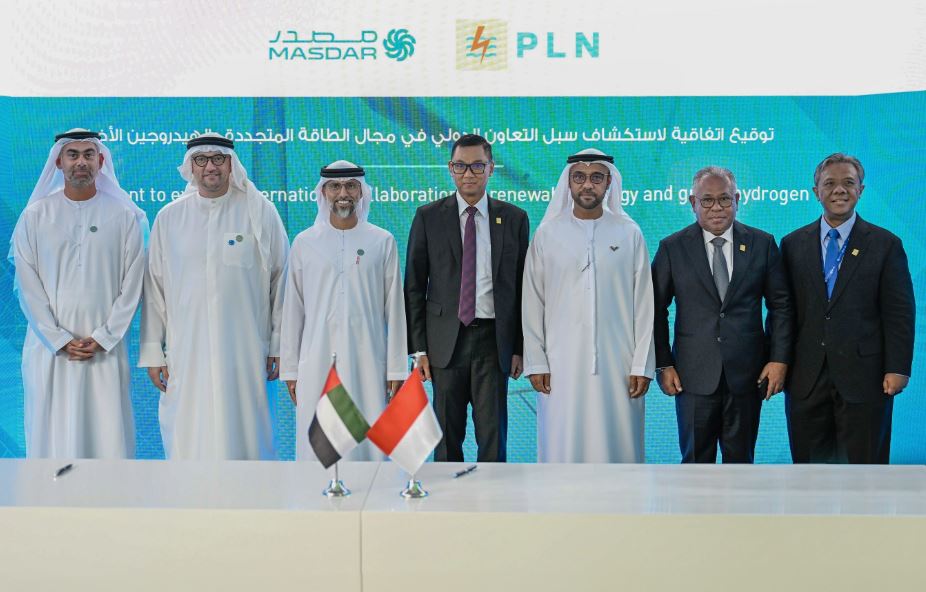Masdar has solidified its collaboration with Indonesia’s state-owned utility company, PLN. The partnership aims to propel the development of Southeast Asia’s largest floating solar power plant and venture into the promising realm of green hydrogen production.
The ambitious project announcement took center stage at the UN’s Climate Change Conference COP28 in the UAE, marking the next chapter in Masdar and PLN’s successful partnership. The recent inauguration of the Cirata project, Southeast Asia’s largest floating solar power plant, served as a testament to their commitment to sustainable energy solutions. Generating 145 megawatts (MWac) and 192MW peak, the Cirata project, located on the Cirata reservoir in West Java, Indonesia, is set to power 50,000 homes while significantly reducing carbon emissions by displacing 214,000 tonnes annually.
During COP28, Masdar and PLN exchanged pivotal agreements witnessed by key dignitaries, including HE Suhail Al Mazrouei, UAE Minister of Energy and Infrastructure. The agreements, signed by Masdar’s CEO Mohamed Jameel Al Ramahi, PLN Group’s CEO Darmawan Prasodjo, and PLN NP’s President Director Ruly Firmansyah, included a framework agreement to explore tripling Cirata’s capacity to an impressive 500MW.
Beyond the floating solar power plant, Masdar and PLN are venturing into the realm of green hydrogen, recognizing its potential to revolutionize hard-to-abate industries. Sectors like steelmaking, construction, transportation, and aviation stand to benefit from the decarbonizing properties of green hydrogen. With both the UAE and Indonesia possessing abundant solar resources, they are poised to become key players in green hydrogen production, supporting their ambitious net-zero targets.
Expressing enthusiasm about the collaboration, Masdar’s CEO Mohamed Jameel Al Ramahi highlighted the importance of innovative projects like Cirata, emphasizing how it addresses multiple needs simultaneously. He expressed Masdar’s commitment to pioneering innovation in solar, green hydrogen, and other crucial areas to support the region’s energy transition.
The decision to triple Cirata’s capacity to 500MW aligns with recent regulatory changes in Indonesia, allowing up to 20% water coverage for renewable energy projects. Built on water, the Cirata plant minimizes land use, a critical consideration in countries like Indonesia with limited land availability. The water’s cooling effect enhances efficiency, and the floating panels reduce evaporation, preserving water for essential needs.
Masdar’s foray into the geothermal market in Indonesia further underscores their commitment to a diverse and sustainable energy portfolio. The strategic investment in Indonesia’s Pertamina Geothermal Energy positions Masdar in the world’s second-largest geothermal market, opening new avenues for clean energy development.
As Masdar and PLN deepen their collaboration, Southeast Asia anticipates a transformative shift towards a greener, more sustainable energy landscape. The groundbreaking initiatives unveiled at COP28 set the stage for pioneering advancements that promise to shape the region’s energy future.
